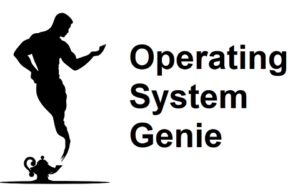Having a fast computer is much better, and there are a range of tweaks you can do to a computer to make it run faster. On most computers there are a bunch of files that are almost never used. So, today I will explain if having a full hard drive affects performance of a computer.
Overall, a full hard drive does not affect performance. Independent tests have shown that regardless of how full a hard drive is, a computer remains the same speed. In fact, in some tests a computer was faster when it had a fuller hard drive.
Below, I will show the results of the independent test to answer if:
- Having a full hard drive slows down a computer
- Low storage slows down a PC
- Storage affects laptop performance
Let’s get into it!
Does Having a Full Hard Drive Slow Down a Computer

Having a full hard drive does not slow down a computer. Below, is a table the shows the results of independent tests. They were done by increasing how full the hard drive is on a computer and measuring how long it took.
| Test | 60% Full | 70% Full | 80% Full | 90% Full | 99% Full |
| PC Restart | 23 seconds | 23 seconds | 25 seconds | 24 seconds | 23 seconds |
| Open Benchmark | 12 seconds | 12 seconds | 12 seconds | 12 seconds | 12 seconds |
| Benchmark FPS | 65 FPS | 65 FPS | 65 FPS | 65 FPS | 65 FPS |
| Copying 1GB | 23 seconds | 19 seconds | 19 seconds | 23 seconds | 18 seconds |
| Transferring 1GB | 7 seconds | 7 seconds | 7 seconds | 7 seconds | 8 seconds |
As you can see, regardless of how full the hard drive was, it took almost exactly the same amount of time to do each of the tests. The open benchmark test is a game-like test that loads some graphics intensive display.
The numbers don’t lie. And it’s crystal clear that no matter how full your hard drive is it will run at the exact same speed. Here’s a video showing the tests and the results.
It’s a widely held misconception that having a fuller hard drive does slow down a computer. With older HDD hard drives this was indeed the case. But, it is not an issue for solid state drives (SSD).
SSD drives are now the norm, and all new computers come with SSD drives. On HDD drives it also improved performance a lot to defrag your hard drive. Which often took a few hours. With SSD hard drives it’s not necessary to defrag the hard drive drive ever.
How much free space should you have on your hard drive
In general, it makes no difference in performance how much free space you have available on your hard drive. But, for practicality it’s a good idea to keep around 100GB free. This will provide more than enough space to install new apps or games.
Modern hard drives are very large and a 1 terabyte drive is common. But, most users will never use up more than 150 GB. Therefore, there is typically more than 90% of a hard drive free on computers.
Laptop computers on the other hand, typically have in the range of 200 GB to 500 GB. Which is more than double what is required. But, provided you have more than 10GB on a work computer, it will be more than enough to accommodate any documents you need.
Does a full hard drive affect gaming performance
Gaming puts a very high demand on a computers resources, especially the graphics card and CPU (processor). The hard drive is involved because the processor accesses the files for the map files and models from the hard drive.
However, independent tests have shown that having a full hard drive has no affect on gaming performance.
The most significant upgrades to gaming performance can be achieved by getting a more powerful processor (CPU), and dedicated graphics card.
Or, a more powerful graphics card. RAM only provides an improvement up to 8GB. Beyond that, there is no benefit in getting additional RAM.
The graphics card (GPU) is involved a lot in gaming. A common question people have is if your GPU should be maxed out when gaming. I explained this in more detail in this article about what percent your GPU should be at
Does Low Storage Slow Down PC
Low storage does not slow down a PC. The amount of free storage you have on your computer does not affect the speed of a computer. Independent tests have been done to find how fast or slow computers are based on how full the hard drive is. They have shown that it does not affect performance at all.
However, on older HDD hard drives the fuller it gets the slower it performs. But, it’s almost guaranteed you have an SSD hard drive, as these became mainstream 2006, more than 15 years ago.
To see if you have an SSD hard drive open Task Manager. Below, is a screenshot showing where you can find this info:

To do that by search for task manager in the start menu. Once it opens on the left had side there is a tab that says performance. Click on that and it will display the window above. Below, Disk it will say SSD or HDD.
Does Storage Affect Laptop Performance
Windows requires a specific amount of space to operate which is not very much. But, some programs can be very large. Laptops come with different amounts of storage. It does not affect performance in any way if your laptop has more or less available storage on it.
The one consideration is how many programs you will be installing on your computer. Provided, you have 200GB of more you can install up to about 5 of the most modern games. Generally, the amount of hard drive spaces goes up for a computer with a faster processor.
But, as a general rule, a 250GB hard drive is adequate. For laptops, if you need more storage than that, you should upload some files to cloud such as Google Drive. And/or use an external hard drive.
